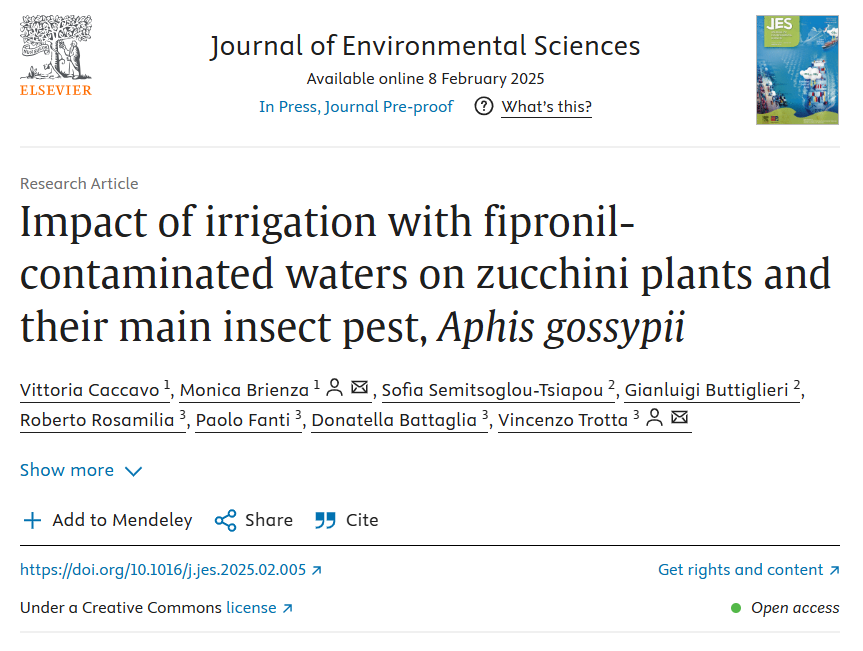
A recent study published in the Journal of Environmental Sciences—conducted as part of the PRIMA-SAFE project—investigates the impact of using fipronil-contaminated irrigation water on zucchini plants and their main insect pest, Aphis gossypii.
The researchers found that even low concentrations of fipronil, a persistent insecticide often found in treated wastewater, can accumulate in plant tissues and negatively affect aphid survival and reproduction. More importantly, aphids exposed to these conditions showed increased resistance to pyrethrins, a natural insecticide widely used in organic farming.
These findings raise important concerns about the ecological and agronomic risks of reusing treated wastewater in agriculture. They suggest that pesticide residues in irrigation water—though present at low levels—may contribute to the development of resistance in pest populations and impact the sustainability of crop protection strategies.
Reference
Caccavo V. et al. (2025). Impact of irrigation with fipronil-contaminated waters on zucchini plants and their main insect pest, Aphis gossypii. Journal of Environmental Sciences.
DOI: 10.1016/j.jes.2025.02.005

